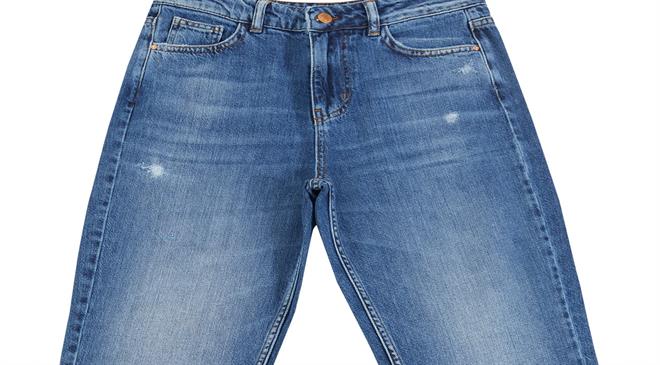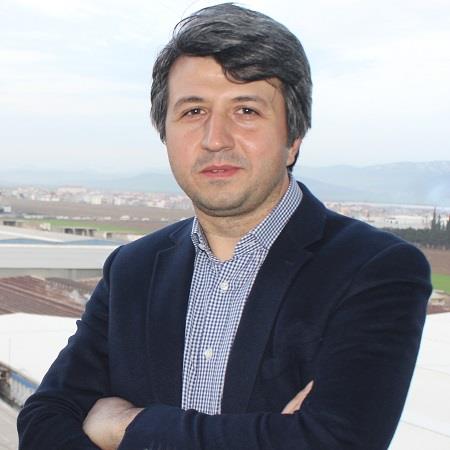Aim to become carbon neutral by planting half million trees
Founded in 1984, Kipas Texstil, is the largest textile company in Turkey and the entire Europe for yarn, denim and non-denim woven fabric. The denim facility of Kipas, founded in 2002, continues to produce around 55 million metres of denim fabric every year. Halit Gumuser, Managing Director – Member of The Board, Kipas Denim, speaks about the strengths of the company, the development of Kipas denim library allowing for digital representation of its collections and major sustainability initiatives being undertaken by the company.
When creating a wash, how does the inspiration come about?
We work with washing experts in Turkey. There are many experienced people. We also update ourselves about laundry trends on some trend web pages, trade shows, runways, and collections.
What is unique to the Turkish denim market? How is it different from the rest of the world?
When you compare all textile materials, denim is considered a unique fabric. Hence, it needs constant innovation and high-quality production. The Turkish denim industry has tremendous know-how on innovation and considerable experience to achieve top-notch quality. Thanks to many engineers in R&D departments, industry players in the Turkish market constantly improve their product lines and qualities.
How long does it take to develop a wash? And how many techniques are often used on just a single one?
It takes around 1-2 weeks to develop a new washing recipe from scratch.
Also, is fit a factor and how it changes depending on textiles chosen and the treatments involved to creating the final product?
We believe that fabrics and patterns should fit perfectly. Suitable combinations of these two elements always yield very satisfying results. To name a few--weight, elasticity, shades are critical technical parameters.
Could you tell us a bit about how it all started for Kipas Denim? Who is/are the founders of the group?
Kipaş Holding was founded in 1984 by the Öksüz and Gümüşer families in Kahramanmaraş. Today, with more than 35 years of experience, 6 different industries divided over 25 factories, and more than 10,000 employees, Kipaş is one of the leading companies in the region and Turkey. Kipaş Textiles is the largest fully integrated production facility in Europe with highly flexible production capabilities with an annual production capacity of 80 million metres of fabric and 330 tonnes of yarn per day.
As pioneers in the textile industry, Kipaş states that its role is to innovate, improve, collaborate, and lead toward a genuinely sustainable and circular future that adds value to our industry. Kipaş currently embodies ring, open end, and air jet facilities and produces a rich product range from yarn to denim, non-denim, dyehouse, technical textiles, and garments. Kipaş Holding additionally has productions in cement, paper, energy, education, and logistics.
What are the strengths of Kipas Denim as a denim-making company?
As pioneers in our industry, we believe that our role is to innovate, influence, collaborate and lead toward a genuinely sustainable and circular future. We adopt a collaborative and long-term approach to develop partnerships around our supply chain. That's why the fluctuation of cotton prices has a minimum effect on Kipaş Textiles. Our production and product diversity allow us to be flexible in planning our production and keeps a stable position in the industry even under drastic changes. We are extremely flexible in shifting our capacity in different segments of the textile industry.

In what ways are you able to keep the company green without sacrificing the end product?
At Kipaş Holding, our vision is to lead the change towards circular and renewable industries while being a fair and reliable company. We are working to catalyse systemic changes across our operations, our entire value chain, and our industry using our size and scale.
Our priority is to respect nature and people. We acknowledge the needs of present and future generations and the demand both by our planet and our industry. We believe that the way we conduct our business should be economically, socially, and environmentally sustainable.
We take a responsible consumption approach on water, energy, raw materials, and circularity and develop leading processes to achieve our goal to become climate positive. We are already recycling 100 per cent of the waste that occurs during our production for pre-consumer recycled cotton. We will be ready to recycle post-consumer waste with our new shredding facility, which will be ready to operate in a couple of months. We also utilise our own 100 per cent renewable energy resources for our production.

What are your main struggles now and do they differ from the times before Covid struck?
Generally, our struggles are the same. As I said before, increasing price of raw materials prices is one of the biggest problems for our industry. We also missed presenting our collection face-to-face. Still, meanwhile, we developed Kipas Denim Library, which allows us to present our collections digitally with to-the-point filters, high-definition visuals and videos, and an easy order option.
Where do you source the cotton for the denim? Where are your manufacturing units based at?
At Kipaş, we have massive yarn production. We supply raw materials from different sources based on diverse customer demands. We prefer Africa, the US, Brazil, Australia, and the domestic market for cotton supply.
What is the yardage of denim you are able to produce on a yearly basis?
We have 50 million metres as denim fabric and 30 million metres as non-denim capacity per year. In addition, our production and product diversity allow us to be flexible in planning our production.
What are the new associations with brands/retailers you are looking forward to?
We have many collaborations with our clients. For example, we are producing 100 per cent recycled denim for Tommy and H&M. These fabrics allow brands to integrate sustainable and circular denim in their collections.
What will be the upcoming trends for Winter 21/22?
More conscious products and processes are getting more and more important. Using less sources like water and energy is the key trend for all kinds of fabrics. On the other hand, authentic denim looks are still essential. Salt & pepper look, marble effects, and laser-friendly fabrics are still core requests for winter collections. Fabrics made from renewable sources and using alternative cotton fibres are upcoming trends.
How does the process start when working with brands?
Sometimes our customers come to us with their new projects. Sometimes they choose something from our collections and create a concept with our fabrics. In both cases, we are working together to develop their ideas further.
What is the top mix of choice (100 per cent cotton or cotton stretch mix) by brands when choosing the textiles? And do you create custom orders for them?
For the recent seasons, one of the hottest trends in the denim market was the authentic look which increased the demand for 100 per cent cotton and low elasticity fabrics like 99 per cent cotton and 1 per cent elastane that enables an authentic look. Additionally, our customers are mainly interested in recycled cotton blends, Tencel, and hemp blends. Our priority is to provide maximum access to sustainable solutions.
What are your long-term plans as a company?
Textile is one of the most polluting industries in the world. We aim to progress with sustainable investments and embrace innovative technologies globally for long-term business opportunities to keep Kipaş relevant and thriving in a rapidly changing world. We are currently building an indigo dyestuff recycling facility and investing in renewable energy and solar energy. We also invest more in our R&D department to develop more value-added products.
By 2025:
• We aim to supply only 100 per cent sustainable and certified cotton.
• We aim to operate with 100 per cent recycled water in the entire production, aiming to achieve zero water discharge.
• We aim to become carbon neutral by planting half a million trees.
By 2030:
• We aim to support the sustainable supply chain by producing 100 per cent of our products with recycled and sustainably sourced resources.
• We aim to operate our facilities with zero carbon emissions.
By 2040:
• We aim to be climate positive by supporting the climate positive value chain.



